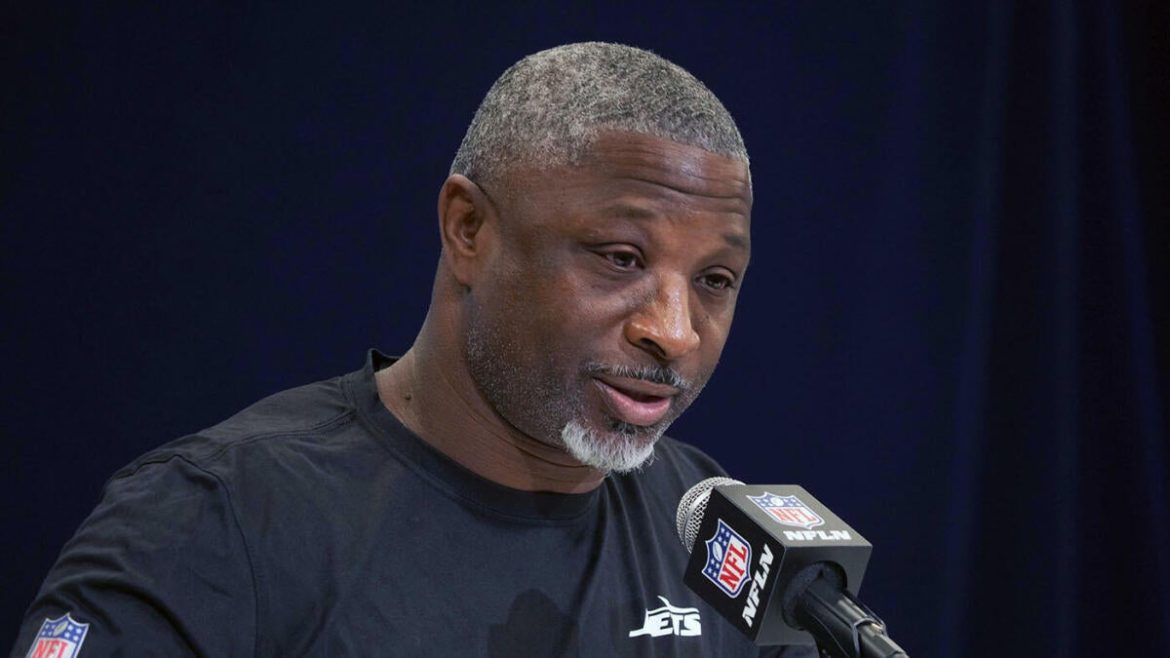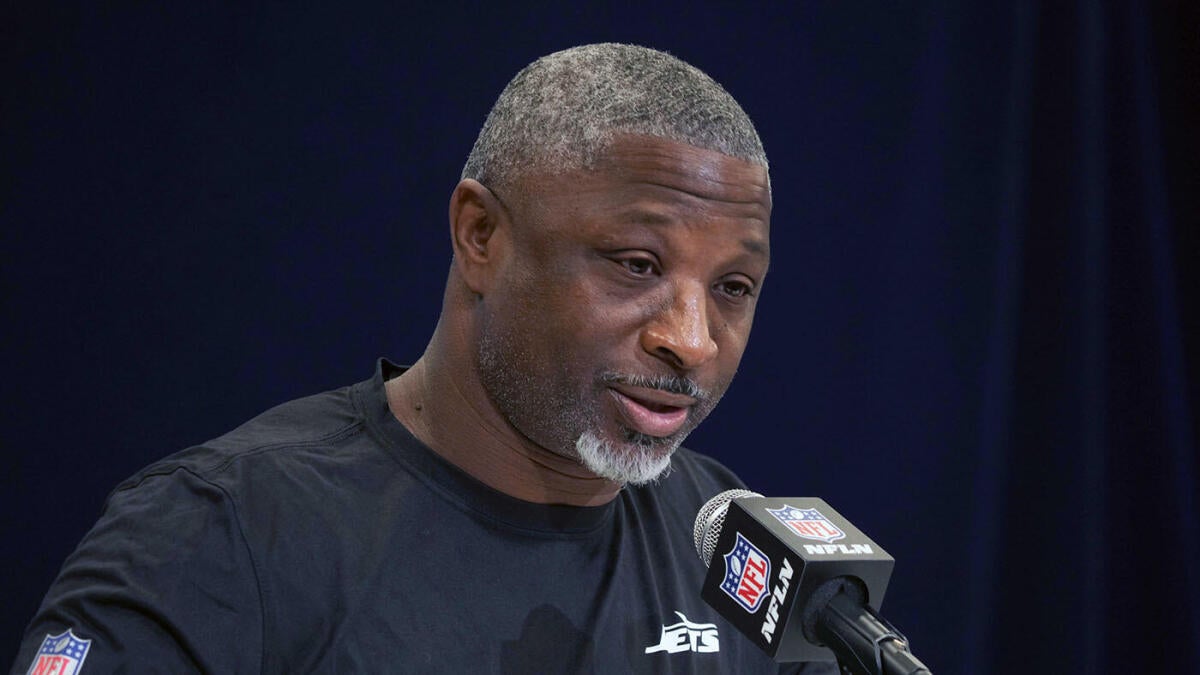Aaron Glenn’s Arrival and the Jets’ Quarterback Transition: A Closer Look at the Subtle Dynamics Between Justin Fields and Aaron Rodgers
—
Aaron Glenn’s appointment as the New York Jets head coach in 2025 marked not only a leadership change but also a significant pivot in the team’s quarterback direction. Central to this transition is the replacement of Aaron Rodgers by Justin Fields, a shift that has sparked both on-field anticipation and off-field conversations. Glenn’s public praise for Fields, nuanced with subtle critiques of Rodgers, reveals much about the Jets’ evolving culture and the expectations placed on their new franchise cornerstone. This analysis explores the unfolding narrative around Glenn’s coaching philosophy, Fields’ potential, and the contentious exit of Rodgers, connecting the dots to understand the bigger picture for the Jets moving forward.
Embracing Justin Fields: Authenticity and Quiet Confidence
Aaron Glenn has repeatedly emphasized Justin Fields’ authentic nature and quiet leadership as invaluable assets for the Jets. He describes Fields as a player whose “quiet voice” does not equate to weakness but rather signals genuine leadership marked by calmness and command. Fields’ reputation for “football intelligence,” “relentless work ethic,” and a big arm — qualities nurtured since his Ohio State days — fit well into Glenn’s vision of a quarterback who can lead by example rather than volume.
This portrayal contrasts sharply with the tenure of Aaron Rodgers, who embodied star power and a more outspoken presence. Glenn’s framing of Fields as someone who is “just himself” and a “positive influence” on the locker room hints at a clear cultural shift. The Jets appear eager to build an environment centered around humility, authenticity, and steady growth rather than relying heavily on flash or legacy reputation.
The Subtle Shot at Aaron Rodgers: What’s Behind the Praise?
While Glenn has not directly disparaged Rodgers, subtle undertones in his praise for Fields have fueled speculation of a slight aimed at his predecessor. Statements highlighting Fields’ “authenticity” and “quiet confidence” can be interpreted as indirect contrasts with Rodgers’ more turbulent or high-profile departure.
Notably, Rodgers’ own revelations on “The Pat McAfee Show” shed light on tensions with Glenn, including a meeting the quarterback found curt and disappointing. Rodgers expressed frustration over how the organization communicated their decision to move on. Glenn’s leadership style, arguably more stringent and less accommodating to established stars past their prime, symbolizes a clear break from the previous Jets era.
This dynamic is layered: on one hand, it portrays a pragmatic franchise unwilling to hinder long-term rebuilding for short-term star power; on the other, it sends a message about the importance of cultural fit and alignment with team ethos, not just individual talent.
The Jets’ Bigger Picture: A Fresh Start and High Hopes
The Jets are clearly betting on a full rebuild under Glenn’s stewardship, with Fields as the linchpin of that future. Glenn praises Fields as “ready to break out as a top-notch quarterback” and stresses the untapped potential he believes can be unleashed with the right support and system design. This optimism aligns with the team’s broader strategy to move away from costly, short-lived experiments and focus on development, consistency, and authenticity.
Players around Fields, such as wide receiver Garrett Wilson, reinforce the positive sentiments, highlighting Fields’ commanding yet calm presence. The Jets’ offseason moves, including significant investments and roster adjustments, show a commitment to surrounding Fields with the tools he needs to succeed, further bolstering the narrative of a new dawn.
Cultural Reset and Leadership: Glenn’s Style Under the Microscope
Glenn’s coaching approach is described as one that values deliberate communication, a quieter leadership style, and strict expectations for professionalism and focus. The short, direct meeting with Rodgers and the clean break represents this no-nonsense philosophy.
This style has apparently garnered respect from Fields, whose playing style and personality mesh with Glenn’s vision. The “man’s man” label Glenn attached to Fields hints at a coach valuing grit and grounded leadership over flamboyance or superstar demands. The move also signals the Jets’ willingness to forge an identity distinct from the star-centric models of the past, focusing instead on team cohesion and buy-in.
The Impact on Aaron Rodgers and Legacy Reflections
Rodgers’ abrupt exit has been a focal point of media and fan discussion. His response to Glenn’s handling of the situation—particularly the perception of a brief, dismissive meeting—reveals a gulf in communication and mutual expectations. The episode underscores the challenges teams face in managing transitions involving iconic yet aging players, especially when new leadership demands reset priorities.
Despite this, Rodgers has publicly acknowledged Fields’ potential and wished the Jets well, signaling professionalism but also subtly affirming that the Jets’ direction no longer aligned with his legacy or timeline. This dynamic adds depth to the narrative that the Jets’ franchise overhaul was both necessary and inevitable.
Conclusion: A Franchise in Transition With Eyes on the Future
Aaron Glenn’s praise of Justin Fields, underscored by subtle contrasts with Aaron Rodgers, encapsulates a franchise deliberately shedding its past in pursuit of a new identity. Glenn’s emphasis on authenticity, quiet leadership, and untapped potential signals a cultural reset that prioritizes team unity and long-term growth.
The Jets’ faith in Fields, supported by deliberate roster construction and a clear coaching philosophy, reflects a rigorous approach to rebuilding. Meanwhile, the handling of Rodgers’ departure illustrates the tension inherent in balancing respect for established stars with the pragmatic demands of team evolution.
As the 2025 season approaches, Jets fans and NFL observers will watch closely to see whether Fields can fulfill Glenn’s vision and whether this bold pivot heralds a sustained era of success for the New York Jets. This unfolding story is a compelling case study in leadership transition, culture shaping, and the delicate art of quarterback succession in professional sports.





